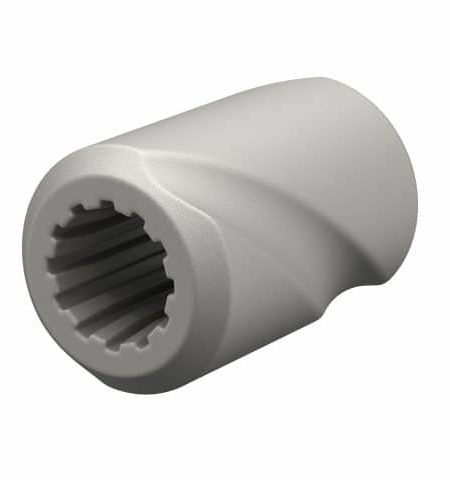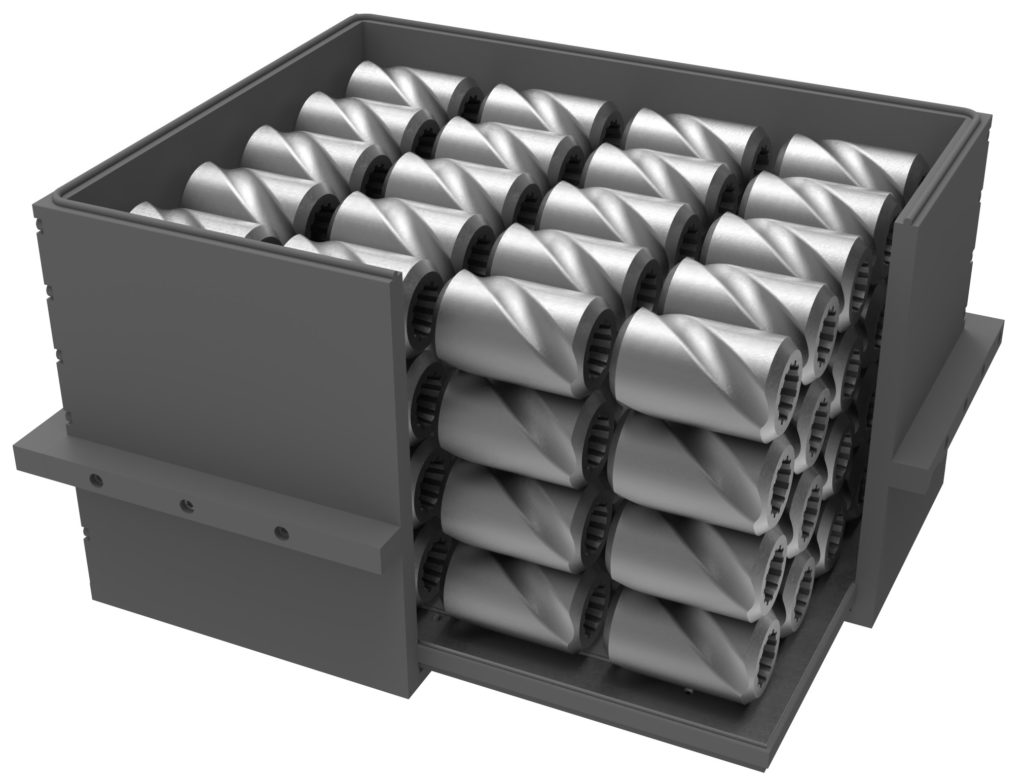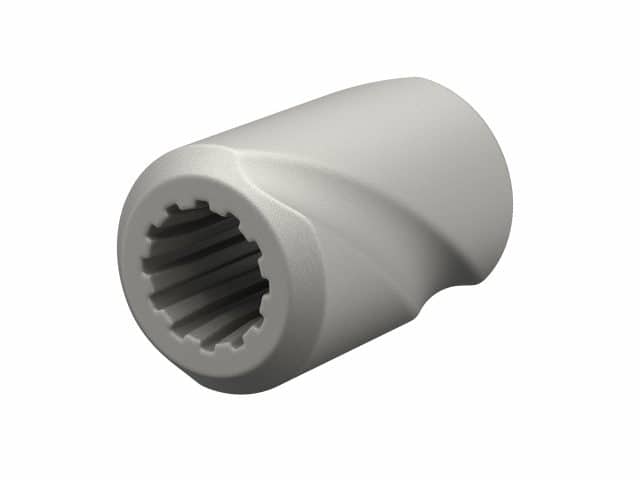D2 Tool Steel (DM Production System)

DESKTOP METAL®
D2 Tool Steel
The steel for high-strength, high-temperature applications
D2 tool steel is a versatile material that provides tooling grade strength while also offering corrosion resistance, a key benefit for conformally cooled applications.
D2 Tool Steel. For conformal cooling applications
D2 tool steel is a versatile high-carbon, high-chromium air-hardening tool steel characterized by its high hardness and compressive strength after heat treatment. This tool steel also offers extremely high wear resistance properties, dimensional stability, and corrosion resistance in the hardened condition, a key benefit for conformal cooling applications.

Applications

Rotating Cam (DM Production System)
Material: D2 Tool Steel
Rotating cams are used in oil and gas or chemical processing applications to convert rotary motion into reciprocating linear motion in a machine.
Full Description
Typically these parts require multiple manufacturing steps, beginning with CNC machining and followed by broaching of the spline on a separate machine.
Binder jetting enables the production of cams in a single printing step, reducing both the cost and lead time of the part, while also supporting the production of numerous cam sizes in a single build to accommodate different machines, all without any fixturing or tooling required.
D2 tool steel is critical for this application because of its hardness and corrosion resistance, which ensures a longer lifetime as the cam mechanically interacts with a sliding pin. In addition, because these components are often integrated into machines operating in harsh environments, the corrosion resistance provided by D2 ensures that the parts will perform as intended and not deteriorate.
Technology/Process
- Single Pass Jetting™ (SPJ) Technology
Material Properties
TRANSVERSE RUPTURE STRENGTH
After Quench & Temper, ASTM B528
![]()
2.2 ± 0.2 GPa
QUENCHED HARDNESS (HRC)
After Quench & Temper, ASTM E18
![]()
63
TEMPERED HARDNESS (HRC)
After Quench & Temper, ASTM E18
![]()
57
DENSITY
Tempered
![]() 7.70 g/cm³
7.70 g/cm³
Performance Scale
| wear resistance | |
| toughness | |
| Corrosion Resistance |
Technical Specifications
Transverse Rupture Strength |
Transverse Rupture StrengthAfter Quenched & Temper, ASTM B528: 2.2 ± 0.2 GPa |
Quenched Hardness (HRC) |
Quenched Hardness (HRC)After Quenched & Temper, ASTM E18: 63 |
Tempered Hardness (HRC) |
Tempered Hardness (HRC)After Quenched & Temper, ASTM E18: 57 |
Charpy Impact Strength* |
Charpy Impact Strength*ASTM E23: 1.2 J*Charpy impact specimens used were V-notched 10 x 10 mm. |
Density |
Density7.70 g/cc |
Surface Finish** |
Surface Finish**ISO 4287: 3 - 8 µm Ra**Surface roughness measured in Z direction after sintering & sandblasting. |
Density |
DensityASTM B311: 8.65 ± 0.005 g/cc |

